I set out to create a 9v motor controller, similar to the LEGO Powered UP Hub but with more features including, programmable firmware, with available GPIO ports, while keeping useful features including rechargable battery, and form factor.
PCB Design
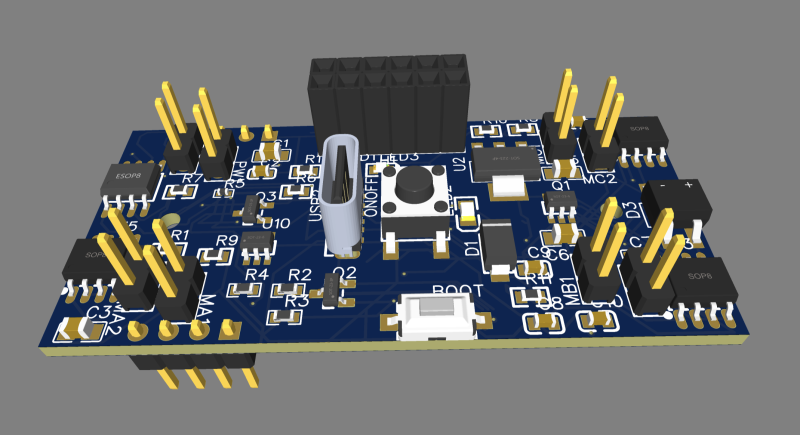
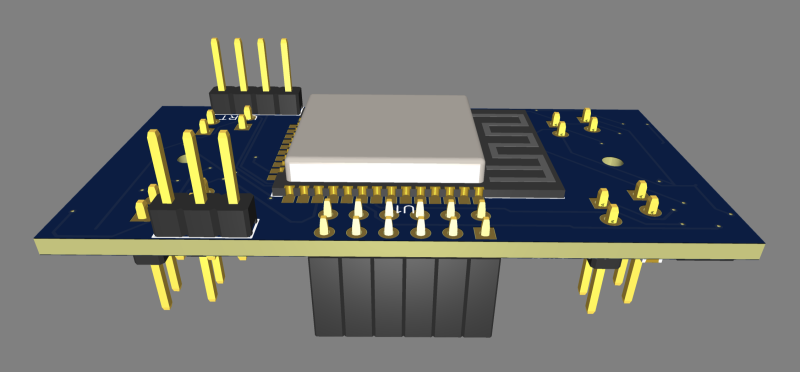
Housing
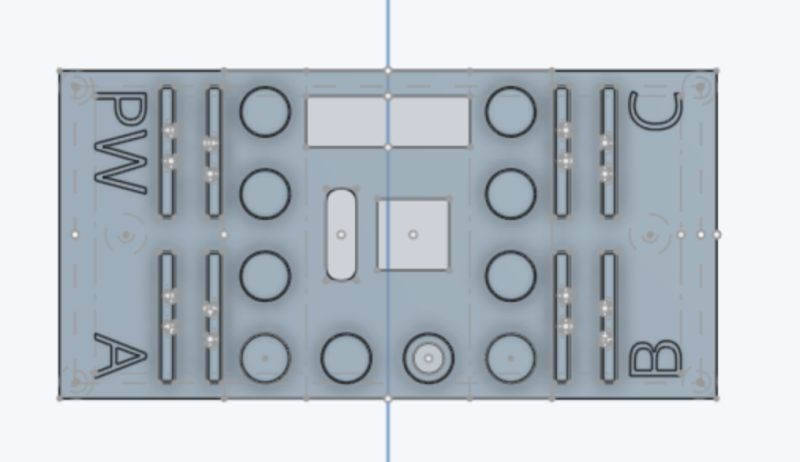
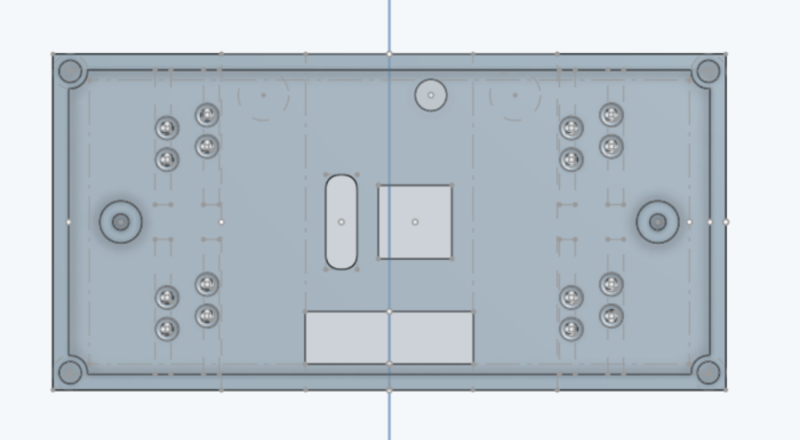
Features:
- 3 motor ports, PWM at 9v
- ESP32
- Female 6x2 IO pins to ESP32, ground and 3.3v
- Full bridge rectifier to handle wrong polarity
- Power button (that allows ESP32 to turn itself off)
- (optional) Boot button to allow writing firmware
- 7.4v battery (2x 3.7v in series) with battery charging and balancing
- UART header for firmware updating
- (if space allows: USB port for firmware updating with USB to serial. If no space, UART header is fine)
- Status light
- Battery voltage sensing
- Power connected sensing (if space allows. Not vital)
Power
- Input should be between 7v-10v. The full-bridge rectifier will drop the input voltage.
- 9v boost regulator, such that the motors are always running at 9v
- Seemless switching from battery to input power, also when motors are running
- 3.3v regulator for the ESP32
- Battery is a 7.4v battery (2x 3.7v in series). The charging circuit should handle over-charge, over-discharge, and over-current. The battery should be safely charge.
- Motors, at 9v each use max of 2A stalled current (unlikely), 100mA no load current. 3 motors in total.
- ESP32 at 3.3v, max current 250mA
Battery charging safety concerns
- The charging circuit should be okay with frequent power input disconnects.
- The circuit should not be constantly charging the battery. Only when battery drops below 60%, programmable.
Battery
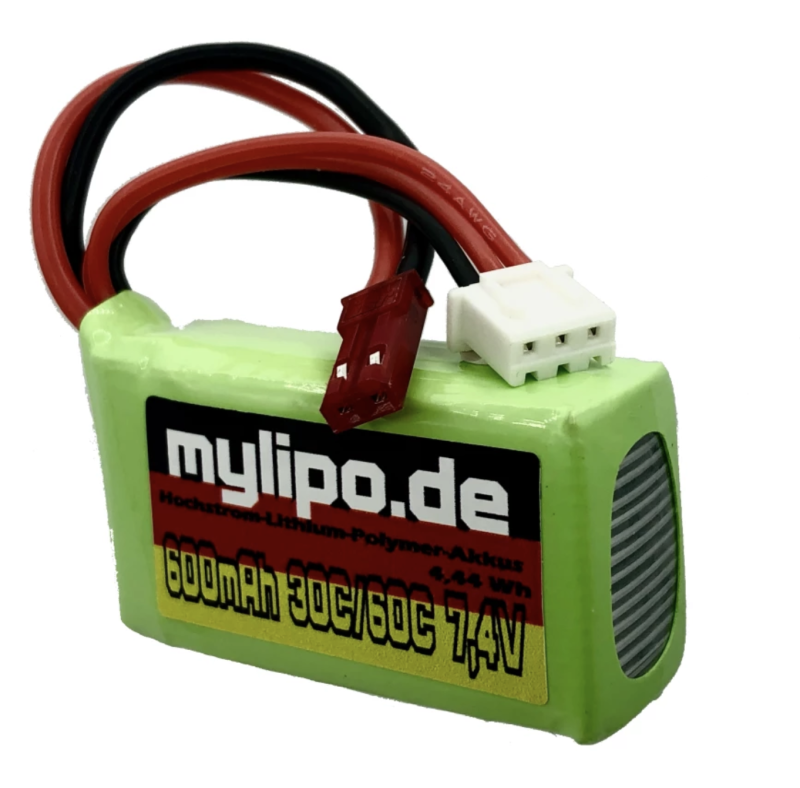
Source: https://www.mylipo.de/Lipo-Akku-600mAh-74V-30C-60C-JST-Stecker
- Voltage: 7.4V
- Capacity: 600mAh
- Weight: approx. 34g
- Dimensions 48 x 25 x 17mm
- Configuration 2S1P
- max continuous load 30C = 18.00A
- short-term load 60C = 36.00A
- JST-XHR Balancersnschluss
- Charge 3C = 1.80A if you have to be quick
- (our charging recommendation 1C = 0.60A)
- Supplied with JST connector